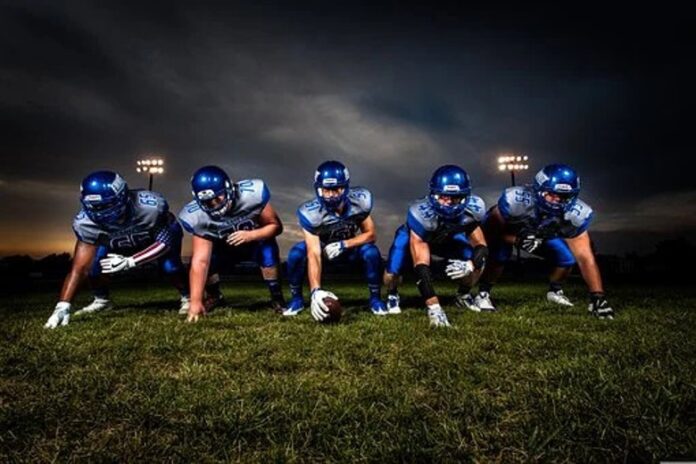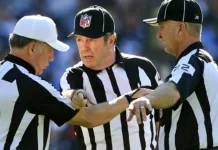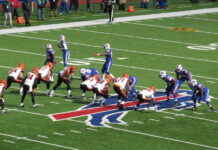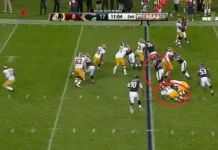Special teams in football represent the highly specialized third phase of the game. Teams utilize these special teams units exclusively during plays involving a kick. These plays include kickoffs, punts, field goals, and extra point attempts. Consequently, they are critical components of a successful football team. Moreover, the unsung heroes of football often come from this phase.
Why Are Special Teams Important in Football?
Metrics easily demonstrate the importance of special teams in football. Controlling this phase is consistently linked to championship success. A single brilliant play can instantly alter a game’s direction.
- Field position battles: Excellent coverage units consistently pin the opponent deep. Therefore, they secure the vital hidden yardage for the offense.
- Momentum swings: An explosive kickoff return touchdown or a sudden blocked punt delivers a massive psychological blow. These are definitive game-changing plays.
- Hidden yardage: Small gains or losses on every play compiled over a full game. Accumulating these yards directly boosts the team’s overall win probability models.
- Game-winning plays: A pressure-packed field goal attempt often decides many crucial contests. These high-pressure kicking situations demand ultimate composure from the kicker.
The Three Main Special Teams Units Explained
Strategic planning requires perfectly organized and well-drilled special teams units. Dedicated practice time optimizes the performance of these football situational units.
Kicking Unit (Field Goals & Extra Points)
This unit attempts points after touchdowns or stalled drives. The field goal unit seeks three points; the extra point unit secures one. This unit’s success depends on the flawless teamwork between the long snapper, holder, and kicker.
Kickoff Unit
The kickoff unit starts both halves and restarts the game after every score. Their mission involves kicking the ball strategically and preventing a big kickoff return. Occasionally, they execute an unexpected onside kick to regain possession.
Punting Unit
The punting unit is deployed to improve field position when the offense stalls. The punter seeks maximum hang time using directional punting. A perfectly placed coffin corner punt is a significant tactical victory.
Return Units (Kick & Punt)
The return unit aims to maximize yardage after a punt or kick. The return specialist seeks an opening created by the blockers. An explosive punt return touchdown or kickoff return touchdown changes the game instantly.
Key Special Teams Positions and Responsibilities
The personnel on special teams must possess highly specialized and unique skills. These players are truly the engine of this phase.
- Kicker, Punter, Long Snapper: The kicker and punter are the primary specialists, requiring exceptional accuracy. The long snapper executes a complex, high-speed snap on every play.
- Holder and Blockers: The holder must receive the snap and place the ball precisely for the field goal attempt. Blockers form a protective shield for the specialists.
- Gunners and Coverage Team: Gunners are the fastest players, racing downfield immediately after the kick. The rest of the coverage team works together to contain the returner.
- Return Specialists: The returner handles the catch and makes immediate decisions. They constantly evaluate calling a fair catch rule versus attempting a long return.
Special Teams Plays That Change Games
The biggest plays in football often arise from these volatile situations. They dramatically affect the expected points added (EPA).
- Punt and kickoff return touchdowns: These are the most electrifying of all game-changing plays. They result in instant momentum swings.
- Blocked punts: Successfully blocking a punt often leads to a short field or an immediate defensive score. This is a critical special teams strategy.
- Onside kicks: This high-risk play is attempted when trailing late, seeking to regain the ball immediately. The opposing team must deploy a strong kicking unit.
- Fake punts and fake field goals: These calculated gambits attempt to surprise the opponent and convert a critical down. The fake punt success rate is low, but the reward is high.
Special Teams Strategy and Coaching
Superior preparation by the coaching staff drives consistent performance. Special teams strategy requires a keen eye for detail.
- Role of the special teams coordinator: This coach manages all special teams units exclusively. They are vital to ensuring tactical readiness.
- Formation shifts and disguises: The coordinator uses subtle variations to confuse the opposing coverage team. This creates exploitable personnel mismatches.
- Personnel mismatches: Exploiting a weak opponent is key to special teams strategy. They target players to gain an advantage for their gunners and returners.
Special Teams in the Modern NFL
Football analytics and safety rules continually evolve in this phase. Its dynamic nature requires constant adaptation.
- Rule changes and kickoff adjustments: Recent kickoff rule changes aim to reduce high-speed impacts. Teams must constantly adapt their formations to new league safety standards.
- Analytics (EPA, win probability): Coaches use metrics like expected points added (EPA) to guide crucial fourth-down decisions. Data helps manage high-pressure kicking situations.
- Mental pressure on kickers: The reliability of the kicker is critical under immense late-game pressure. The position carries immense responsibility for team success.
Famous Special Teams Moments in Football History
Historical game-changing plays prove the lasting impact of this phase. These moments are legendary historical signals.
- Music City Miracle: This miraculous, controversial play resulted in an improbable kickoff return touchdown. It remains one of the wildest finishes ever seen.
- Adam Vinatieri’s clutch kicks: Adam Vinatieri’s Super Bowl kicks cemented his legacy. He exhibited unwavering composure during the most significant moments.
- Devin Hester’s Super Bowl return: Devin Hester’s kickoff return for a touchdown opened Super Bowl XLI. He established himself as an all-time outstanding return specialist.
The Future of Special Teams in Football
Technology and continued safety emphasis will shape the future of special teams in football. Innovation is actively being explored across the league.
- Potential rule changes: Discussions continue regarding further adjustments to kickoff and punt formations. Safety remains the primary driver of these potential revisions.
- Technology and tracking data: Advanced cameras and wearable sensors provide data on hang time and speed. This intelligence informs better strategic deployment.
- AI and virtual reality training: Teams may soon use VR to simulate high-pressure kicking situations. This prepares specialists better for the chaos of a real game.
FAQs About Special Teams in Football
How many players are typically on a special teams unit?
Most special teams units consist of 11 players, just like offensive and defensive units. However, the specific roles and positions can vary depending on the type of play (kickoff, punt, field goal)
Can offensive or defensive starters play on special teams?
Yes, it’s not uncommon for starters to play on special teams, especially in crucial situations. However, teams often try to balance the risk of injury with the potential impact of using their top players on special teams.
What’s the longest field goal ever kicked in an NFL game?
The longest field goal in NFL history is 66 yards, kicked by Justin Tucker of the Baltimore Ravens in 2021.
Are there any special teams players in the Pro Football Hall of Fame?
Yes, there are several special teams players in the Hall of Fame, including kickers like Jan Stenerud and Morten Andersen and multi-faceted players like Deion Sanders, who excelled as returners.
How do teams practice onside kicks without giving away their strategies?
Teams often practice onside kicks in closed sessions to maintain secrecy. They may also develop multiple onside kick strategies to keep opponents guessing and adapt to different game situations.





